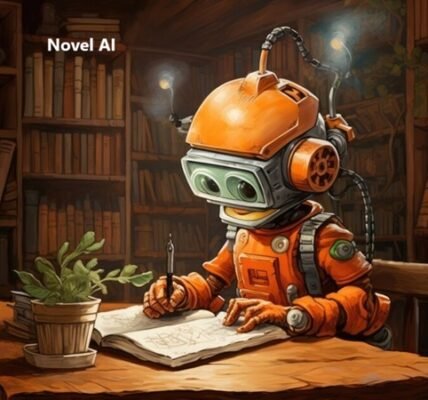The concept of smart cities is rapidly evolving as urban centers around the world embrace innovative technologies to enhance the quality of life for their citizens. At the heart of this transformation is the Internet of Things (IoT), a network of interconnected devices that collect and exchange data, providing real-time insights and enabling smarter decision-making. In this article, we will explore how IoT is revolutionizing urban living, the technologies driving these changes, and the challenges and opportunities that lie ahead in the development of The Future of Smart Cities.
What is a Smart City?
A smart city is an urban area that leverages digital technologies and data analytics to improve the efficiency of city operations, enhance public services, and promote sustainable development. By integrating information and communication technology (ICT) with various physical devices connected to the IoT network, smart cities can optimize resources, reduce costs, and create a better living environment for residents.
How IoT is Transforming Cities
IoT plays a pivotal role in the evolution of smart cities. By connecting sensors, cameras, meters, and other devices to the internet, cities can collect vast amounts of data on various aspects of urban life. This data can then be analyzed and used to improve city management and provide better services to citizens. Here are some of the key areas where IoT is making cities smarter:
1. Smart Transportation
One of the most significant impacts of IoT on smart cities is in the realm of transportation. IoT-enabled systems can monitor traffic patterns, manage public transit, and provide real-time information to commuters. For example:
- Smart Traffic Management: IoT sensors installed on roads and intersections can monitor traffic flow and adjust traffic signals in real-time to reduce congestion. Additionally, data collected from connected vehicles can help city planners optimize traffic patterns and plan infrastructure projects more effectively.
- Smart Public Transit: IoT devices can provide real-time updates on bus and train locations, schedules, and delays, enhancing the overall commuter experience. Smart ticketing systems and contactless payments further streamline the process, reducing wait times and improving accessibility.
- Autonomous Vehicles: IoT plays a crucial role in the development and deployment of autonomous vehicles, which rely on a network of sensors, cameras, and communication systems to navigate safely. By integrating autonomous vehicles into the urban landscape, cities can reduce traffic accidents, lower emissions, and provide more efficient transportation options.
2. Smart Energy Management
Energy management is another area where IoT is transforming urban living. The Future of Smart Cities are leveraging IoT to create more efficient and sustainable energy systems:
- Smart Grids: IoT-enabled smart grids allow for better management of electricity distribution, balancing supply and demand in real time. Smart meters installed in homes and businesses provide real-time data on energy consumption, enabling utility companies to optimize energy distribution and reduce waste.
- Renewable Energy Integration: IoT devices can monitor and manage the integration of renewable energy sources such as solar and wind into the grid. This ensures a stable energy supply while minimizing reliance on fossil fuels.
- Energy-Efficient Buildings: IoT sensors can monitor and control heating, ventilation, and air conditioning (HVAC) systems in buildings, optimizing energy use and reducing costs. Smart lighting systems can automatically adjust based on occupancy and natural light levels, further contributing to energy savings.
3. Smart Waste Management
IoT is also revolutionizing waste management in smart cities:
- Smart Bins: IoT-enabled smart bins can monitor waste levels and notify waste management services when they need to be emptied. This reduces unnecessary collection trips, lowers operational costs, and minimizes the environmental impact of waste collection.
- Waste Sorting and Recycling: IoT systems can assist in sorting waste and improving recycling rates. Automated waste sorting systems equipped with sensors and AI can identify and separate recyclables from non-recyclables, increasing efficiency and reducing contamination.
4. Smart Water Management
Water management is a critical component of smart city development. IoT can help cities better manage their water resources and reduce waste:
- Smart Water Meters: IoT-enabled water meters provide real-time data on water consumption, helping households and businesses monitor and reduce their usage. Utility companies can use this data to detect leaks and provide timely maintenance, preventing water loss.
- Flood and Water Quality Monitoring: IoT sensors can monitor water levels in rivers and reservoirs, providing early warnings of potential flooding. Additionally, IoT devices can monitor water quality, ensuring safe drinking water for residents and identifying sources of pollution.
5. Smart Public Safety and Security
IoT is enhancing public safety and security in smart cities through real-time monitoring and data analysis:
- Surveillance and Monitoring: IoT-enabled cameras and sensors can monitor public spaces and detect suspicious activity, providing real-time alerts to law enforcement agencies. This improves response times and enhances public safety.
- Emergency Response: IoT systems can provide real-time data to emergency responders, helping them make more informed decisions and respond more effectively to incidents such as fires, accidents, or natural disasters.
6. Smart Healthcare
IoT is transforming healthcare in smart cities by enabling remote monitoring and telemedicine:
- Remote Patient Monitoring: IoT-enabled devices can monitor patients’ vital signs and provide real-time data to healthcare providers. This allows for early detection of potential health issues and reduces the need for hospital visits.
- Telemedicine and Health Apps: IoT devices and mobile applications allow patients to consult with healthcare professionals remotely, improving access to healthcare services, especially for those in remote or underserved areas.
7. Smart Governance and Citizen Engagement
Smart cities leverage IoT to enhance governance and citizen engagement:
- e-Government Services: IoT-enabled platforms provide citizens with easy access to government services, reducing bureaucracy and improving efficiency. Citizens can use these platforms to pay bills, report issues, and access public services online.
- Citizen Feedback and Participation: IoT devices and mobile applications can collect real-time feedback from citizens on various issues, allowing city governments to make data-driven decisions and engage more effectively with the community.
Benefits of IoT in Smart Cities
The integration of IoT in smart cities offers numerous benefits:
1. Improved Efficiency
IoT enables cities to optimize operations and resource management, leading to reduced costs and improved efficiency in various sectors such as transportation, energy, and waste management.
2. Enhanced Quality of Life
By providing real-time information and improving service delivery, IoT enhances the overall quality of life for residents. For example, smart transportation systems reduce commute times, while smart healthcare improves access to medical services.
3. Sustainability
IoT helps cities reduce their environmental footprint by optimizing energy consumption, managing waste more efficiently, and promoting sustainable practices.
4. Data-Driven Decision Making
IoT provides city governments with valuable data insights, enabling them to make more informed decisions and implement policies that benefit residents.
Challenges and Considerations
While IoT offers significant benefits, there are also challenges that cities need to address:
1. Data Privacy and Security
The massive amount of data collected by IoT devices raises concerns about privacy and security. Cities need to implement robust cybersecurity measures to protect sensitive data and ensure that citizens’ privacy is respected.
2. Interoperability and Integration
Smart cities often rely on a wide range of IoT devices and platforms from different vendors. Ensuring interoperability and seamless integration between these systems can be challenging.
3. Infrastructure and Investment
Building and maintaining the infrastructure required for IoT-enabled smart cities requires significant investment. Cities need to balance the cost of implementing IoT solutions with the potential benefits they offer.
4. Digital Divide
The digital divide remains a concern in many urban areas, where not all residents have equal access to technology and the Internet. Ensuring inclusivity in smart city initiatives is crucial to avoid exacerbating inequalities.
The Future of Smart Cities with IoT
As IoT technology continues to evolve, the future of smart cities looks promising. Emerging technologies such as 5G, artificial intelligence (AI), and edge computing will further enhance the capabilities of IoT, enabling even smarter and more efficient cities.
- 5G Connectivity: The deployment of 5G networks will provide faster and more reliable internet connectivity, enabling more IoT devices to communicate in real time and enhancing the overall efficiency of smart city systems.
- AI and Machine Learning: AI and machine learning algorithms can analyze vast amounts of data generated by IoT devices, providing valuable insights and enabling predictive analytics. This will allow cities to anticipate issues and take proactive measures to address them.
- Edge Computing: Edge computing will reduce latency and improve response times by processing data closer to the source rather than relying on centralized cloud servers. This will be particularly beneficial for applications that require real-time decision-making, such as autonomous vehicles and smart traffic management.
Conclusion
The future of smart cities is intricately tied to the advancements in IoT technology. By leveraging IoT, cities can become more efficient, sustainable, and responsive to the needs of their citizens. However, the journey toward fully realizing the potential of smart cities comes with its own set of challenges, including data privacy, security, and infrastructure investment. As cities continue to adopt IoT solutions and address these challenges, the vision of smarter, more connected urban environments will become a reality, improving the quality of life for millions around the world.
Also, Read About. Top IoT Trends to Watch in 2024.




